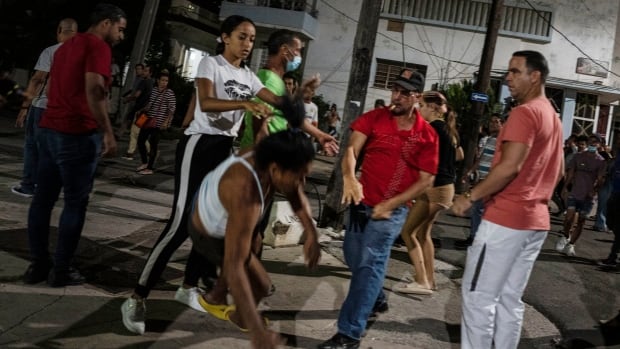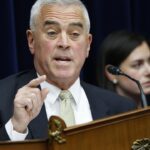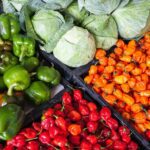Global Courant 2023-04-21 13:00:00
Two Canadian travelers say they received a rude surprise last month when they booked a Sunwing holiday to Cuba and one of them was turned away over comments on Facebook criticizing the country’s unelected government.
About 1.3 million Canadians visit Cuba in an average year; Canadians account for more visits to Cuba than citizens of any other country. Most have little contact with the country’s repressive state organs. But the situation is very different for Canadian citizens born in Cuba.
Toronto native Glenda Corella Cespedes told CBC News she was traveling with her non-Cuban friend Mary Guaragna to attend her brother’s wedding. She said she was carrying suitcases of medicines and supplies for her mother, who recently underwent chemotherapy for lung cancer, and for a family friend who was ill.
Corella Cespedes said she carried her Canadian passport, but knew that as a Cuban citizen, she had to enter Cuba with a Cuban passport. Cuba charges its citizens $360 for the passport and another $160 every two years. Corella Cespedes said she had recently paid her fees and had her documents in order.
‘She knows what she did’
The two landed at Frank Pais Airport in Holguin, Cuba, on March 7 “a little before 9 p.m.,” Corella Cespedes said. medicines and all the things I brought for my family.
“And then I saw five immigration officers get on the plane and they said everyone could get off except Glenda Corella Cespedes.”
Her friend Mary Guaragna told CBC that “at that point we both sort of looked at each other and got quite concerned. I mean I was white as a ghost and Glenda more than myself.
“Canadians getting off the plane just looked at us like we could be, you know, terrorists. We felt awful.”
Cuban-Canadian Glenda Corella Cespedes with an unknown niece during a recent visit to Cuba. She told CBC News that her troubles started when she liked a Facebook comment criticizing a well-connected Communist Party supporter. (CBC News/submitted)
The women said one of the officers took Corella Cespedes’ passport and left them on the plane for about 20 minutes while cleaners boarded and worked around them. A man who appeared to be a senior immigration officer then boarded the plane, Guaragna said, and “handed Glenda a piece of paper that read ‘denial.’ Without any explanation.
“And I said to this guy, who spoke pretty good English, ‘What seems to be the problem?’ In my mind, as a Canadian, (I thought) we could disembark, go somewhere, talk to them, maybe even pay a fine and allow my girlfriend to continue her vacation.
“And he just said, ‘She knows what she did, she knows what she did.’ And at that point I kind of looked at Glenda and Glenda kind of gave me a signal not to say anything else.”
‘Don’t put anything else’
Corella Cespedes said her troubles started when she liked a Facebook comment criticizing a Gibara communist party supporter who works as a doctor at the local hospital where Corella Cespedes once worked as a nurse.
The doctor is part of a three-piece musical group that performed for Cuban Prime Minister Manuel Marrero when he visited earlier this year. After posting video of the performance, the doctor was criticized on social media for serenading Marrero instead of pressing him about the hospital’s state of neglect and a lack of medicines and food for patients. A number of critical comments came from former Gibara residents who now live outside Cuba.
The original video has since been removed.
Corella Cespedes said her parents soon received warnings from local Communist Party members to tell their daughter to stop commenting and posting.
A WhatsApp message Glenda Corella Cespedes says she received from someone who warned her about her social media posts. (CBC News/submitted)
After her expulsion from Cuba, she also received messages via WhatsApp with “advice” from a person who identified himself as Jose Manuel Santos.
“Take my advice,” he wrote on March 29. “You have your parents here and you have cousins, nieces, and nephews. Don’t put anything else on your (Facebook) wall.
“Your ban is for two years, but if you keep sharing things on your wall, they will make it come alive. You have your mother here. Behave for me.”
The Cuban embassy in Canada closed indefinitely in February and calls to the Ministry of the Interior in Cuba went unanswered.
Cuba imposes entry bans more often: lawyer
Laritza Diversent, a Cuban lawyer now living in the US, said the Cuban government is increasingly using travel bans to quell criticism from the Cuban diaspora – criticism that has since become much louder the anti-government protests of July 11, 2021.
“Not all cases were about social media criticism,” she said. “This is a control mechanism over emigrants.” She said Cubans who defected from overseas missions and “balseros” — migrants who fled Cuba on rafts — have been targeted by this measure in the past.
“Since July 11, it has become much more common for people to criticize on social media,” she added.
Laritza Diversent, a Cuban lawyer now living in the US, said the Cuban government is using travel bans to quell criticism from the diaspora. (YouTube)
A month after those protests, the Cuban Ministry of Communications issued Resolution 105, which allows the government to treat criticism of officials on social media as cyberattacks.
The Cuban government is sensitive to the fact that criticism from Cubans outside Cuba is increasingly trickling back to Cuba through social media.
“After July 11, the state put in place a set of standards that allow it to monitor and keep under electronic vigilance the comments of its citizens,” Diversent said. “Canada has been one of the countries where Cuban exiles are most active on social networks since July 11.”
No story, no appeal
Glenda Corella Cespedes was one of those Cuban-Canadians who took inspiration from the events of July 11, 2021.
She came to Canada in 2012, when the Cuban government finally agreed to her request to leave the country, made eight years earlier.
“For a long time I was quiet. I just went on with my life,” she said, adding that she became more active after witnessing the day’s events.
“Just to shout for freedom, to shout that we want to eat, completely defenseless persons who did not even have a stick or a stone to defend themselves, were attacked by the police and by a minority that serves that government to protect the people. to suppress.” she said.
Police scuffle and arrest an anti-government protester during a protest in Havana, Cuba, on July 11, 2021. Hundreds of protesters took to the streets in several cities in Cuba to protest against persistent food shortages and high food prices, amid the new corona crisis . (Ramon Espinosa/The Associated Press)
She said she does not intend to ask the Cuban government to reconsider its decision. In any case, Diversent said, there is no mechanism for doing this.
“They have unlimited discretion, there is no judicial oversight,” she said. “If they deny me entry, there is no way I can make a claim to a tribunal, and there is no way my family in Cuba can start proceedings against that decision.”
A family ‘hostage’
Diversent itself has been subject to the same ban since the Cuban government established its legal rights organization, Cubalex, only to dissolve in 2016 and force her into exile a year later. CBC News spoke to her in San Jose, Costa Rica.
“It’s been five years since I got to physically hug my mom,” she said.
Diversent said state security (Seguridad del Estado) agents visited her mother three times to get her to pressure her daughter to give up her activities, rooting both (the supply of necessary surgery) and sticks (threaten prosecution about her daughter’s activism).
“This control is over all aspects of life,” she said. “The exile who begin to criticize are aware that if they do, they may not be able to return, and that is the price.
“Then how can you bring medicine to your family? It’s a real dilemma, especially because it’s like they’re holding your family hostage.”
As a low-producing and exporting country, Cuba relies heavily on foreign exchange from international tourists, as well as remittances from Cubans living and working abroad.
The government is struggling financially after three pandemic years that have severely reduced visitor numbers. It also experienced a severe decline in remittances after the Trump administration tightened the US embargo against the country and Western Union offices on the island were closed. Agricultural production has been declining for years, which means that more food has to be imported.
Tourists are now returning and Western Union offices have reopened, but the island remains in crisis, with food shortages and frequent power outages.
Canadian dollars critical to the Cuban government
Some Cuban-Canadians believe they are under more pressure from the Cuban government because it is nervous about a campaign by activists here to convince Canadians to stop traveling to the country and stop staying in hotels and resorts owned by the Cuban government. Cuban government and armed forces.
In the first two months of 2023, more than a quarter of a million Canadians entered Cuba, five times as many as Cubans themselves, and more than ten times as many as the second largest group of foreigners, US citizens.
Any significant drop in Canadian tourism could threaten the Cuban Communist Party’s ability to pay bills and maintain its one-party rule.
Tourists walk on the beach in Varadero, Cuba, in 2018. (Fernando Medina/Reuters)
Glenda Corella Cespedes said that despite being ordered to ban her from her former country, she has no intention of remaining silent and has continued to post her views on the situation in Cuba on social media.
She said she does not expect to return as long as the island’s one-party rule continues, as it has for the past 63 years.
“I feel sorry for my mother. I feel sorry for my father, my sister, my brother, my cousin, friends, everyone,” she said.
“But it’s not possible for me to go back.”








